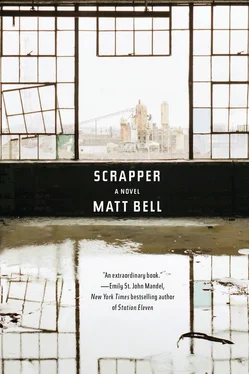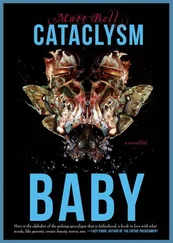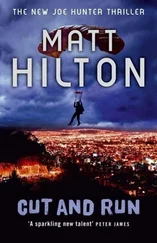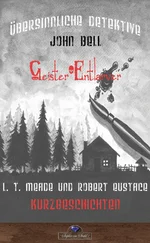By late afternoon, the local news was teasing the story, displaying a ticker along the bottom edge of daytime programming: local hero meets saved boy. When the broadcast began, Kelly poured himself a tall-enough drink to watch the video of the family together, a video of him and the boy. He wasn’t in the first shot, and the second made him look criminal. He had three days’ worth of beard, needed a haircut. The suit fit him but its origins showed. How long had it been since he’d seen himself look so naked. You stopped looking in mirrors when you brushed your teeth, you learned to shave by feel and muscle memory, maybe you never had to look yourself in the eye ever again.
He watched the blonde reporter speak, heard something missing in her cause and effect, in the suggestion that he had always been the hero, that the boy had always been the saved boy, their meeting a plan instead of coincidence. The national news picked up the story, reran the report. He’d been invisible for a year but now he was so easy to find. Other reporters called, wanted their own exclusives. A news van parked outside and Kelly called into work, pushed his luck. He wondered if the southern woman saw. He wondered about her boy. How they would not be convinced by the new narrative of his life, despite the eerie parallels. How he would always be sorry for what he’d done, his own worst thing. The collapse within the collapse. How sorry wasn’t enough, how nothing he could say would be. Always there would be the complete insufficiency of words. On the worst day he had promised not to contact them and this was a promise he would keep. There had been love but he of all people knew love was not enough.
Later a familiar sickness returned as he pushed the cashier’s check across the counter at his new bank. How he could have sent it to the southern woman. How he could have given it to her boy.
When he asked, the bank teller said he probably would have to pay taxes on the reward but not until the end of the year.
THE OTHER WORKERS KNEW he’d been hired to appease the boss’s wife, smoked and swore and spat and ignored him. He wanted a reputation as a hard worker but first he had to match their pace. The challenge of the right kind of slow. He wanted to work safely but it was hard to keep yourself safer than the least-safe guy. He said he knew how to swing a sledge, to work a torch, wanted to be inside the buildings putting his skills to use but after the first week Kelly never saw the man who hired him again. The other men showed him where to shovel the debris, told him to move the shattered plaster or concrete into the long red dumpsters in the parking lot, they made fun of his name and he let them. They weren’t the first to try.
Once the walls of a building came down Kelly swept broken glass in the open air, breathed hard under a paper mask. Snow fell, made every shovel-load heavier. He wore layers of shirts, long underwear under thick brown pants, filled the layers with sweat and silence. He swept and shoveled and hauled what the others knocked down and it was beneath the skills he’d acquired in the zone. Sometimes he worked straight through the day. More sweeping glass, more dragging splintered rafters and crushed wood paneling. In one building he carried cracked urinals down five flights of stairs in one wing, down six in another. Often someone shit in a toilet long after the water was shut off. The others joked it beat walking all the way downstairs but Kelly was the one who had to carry what they made, had to crouch over and reach around the loaded bowl to back out the four bolts securing it to the wall. Shit on his hands and piss on his shoes, a hard hat on his head and a fluorescent vest fastened around his chest. A mask might keep his lungs from turning black but nothing stopped his stomach turning.
How do you rate, one of the others said, shouldering past him in a narrow hallway littered with broken glass, shattered plaster. My brother used to do your job and now look at how shitty you’re doing it.
One day the foreman made him maneuver a fire hose, spraying water over the dust forced free by an excavator. The dust could explode, the foreman said, and Kelly nodded, did what he was asked. The water turned the worksite into a puddled muck, gray water moving fast over frozen ground, thick with floating particulate. The dust rose and he knocked it down. It was a job anyone else might get complacent about but never him. He could never tell anyone about the fire at the plant but he knew some part of him was constantly turning over what had happened. He had worked to make this part inaccessible to the rest of him. This was a diminishment in capacity but so far he thought he was getting along fine.
When the Christian women left, the city watch entered. Five men, volunteers dressed in orange t-shirts and orange football jerseys worn under winter coats, each shaking Kelly’s hand, each bearing a name forgotten immediately for some identifying mark instead: the first, big as a linebacker; another white haired and white mustached; another bad toothed, tattooed; the fourth with one cloudy eye, as white as the other eye was yellow, jaundiced. The fifth a former cop with silvered temples, a nose broken multiple times.
We saw you on the news, the cop said. A hero. We want you to come to our meetings.
Kelly balked but opened six beers, dumped an ashtray so the men could smoke. He’d seen men like these men before, in other neighborhoods, had learned to recognize their type, the sunglasses and ball caps and leather gloves, how against their own rules some disguised their bright uniforms beneath dark jackets. The city watch held its own training sessions, invited city councilmen and police veterans and the survivors of horrible crimes to come and speak. If you could tell yourself you were protecting someone else, how much further might you be able to go.
In his apartment, the men told stories and Kelly relaxed into their tall tales, the bravado and the dismay. The volunteers spoke the name of a minor dealer; the name of a raped girl, the name of her child; the name of a minister who fed gang members because he said everyone deserved a chance at redemption. A roll call of scared neighbors they each checked on, of old women living on blocks all their own, their yards growing high and snarled as the streetlights clicked off for good. The last white family living in what used to be a white neighborhood. The last black family living in what used to be a black neighborhood. After both families were gone, only ghosts would remain. And what color were ghosts.
The men drank and the men smoked and Kelly followed along better when they used the names of streets and neighborhoods, the numbers and letters of freeways. In the zone they drove pickup trucks or SUVs, installed brighter headlights, dashboard cameras, did their best for the city they loved. Kelly asked the former cop if he carried a gun on his rounds, and the cop said, Never tell them either way. Don’t say you do and don’t say you don’t.
We don’t talk about firepower, he said, but whatever they got, we can match it.
Kelly nodded. He understood but he didn’t want a weapon of his own. He had a short temper he controlled by not putting himself in places it might erupt. If he had a handgun in his truck he knew someday the handgun would go off.
Would go off. As if it were the gun doing the work. As if a plastic Glock had its own agency.
He would go to their meeting, he said, but that didn’t mean he was joining their cause.
They laughed, clapped him on his shoulders. He’d see, they said. He had saved a boy but the police hadn’t found the boy’s kidnapper. Maybe these volunteers would.
Kelly put down his cigarette, rubbed his eyes. For a moment he’d had trouble telling one man from another. What was similar was stronger than what was different, their station an ideal better than any individual. He moved his gaze from face to face, trying to match the names they’d offered to the features he saw.
Читать дальше












